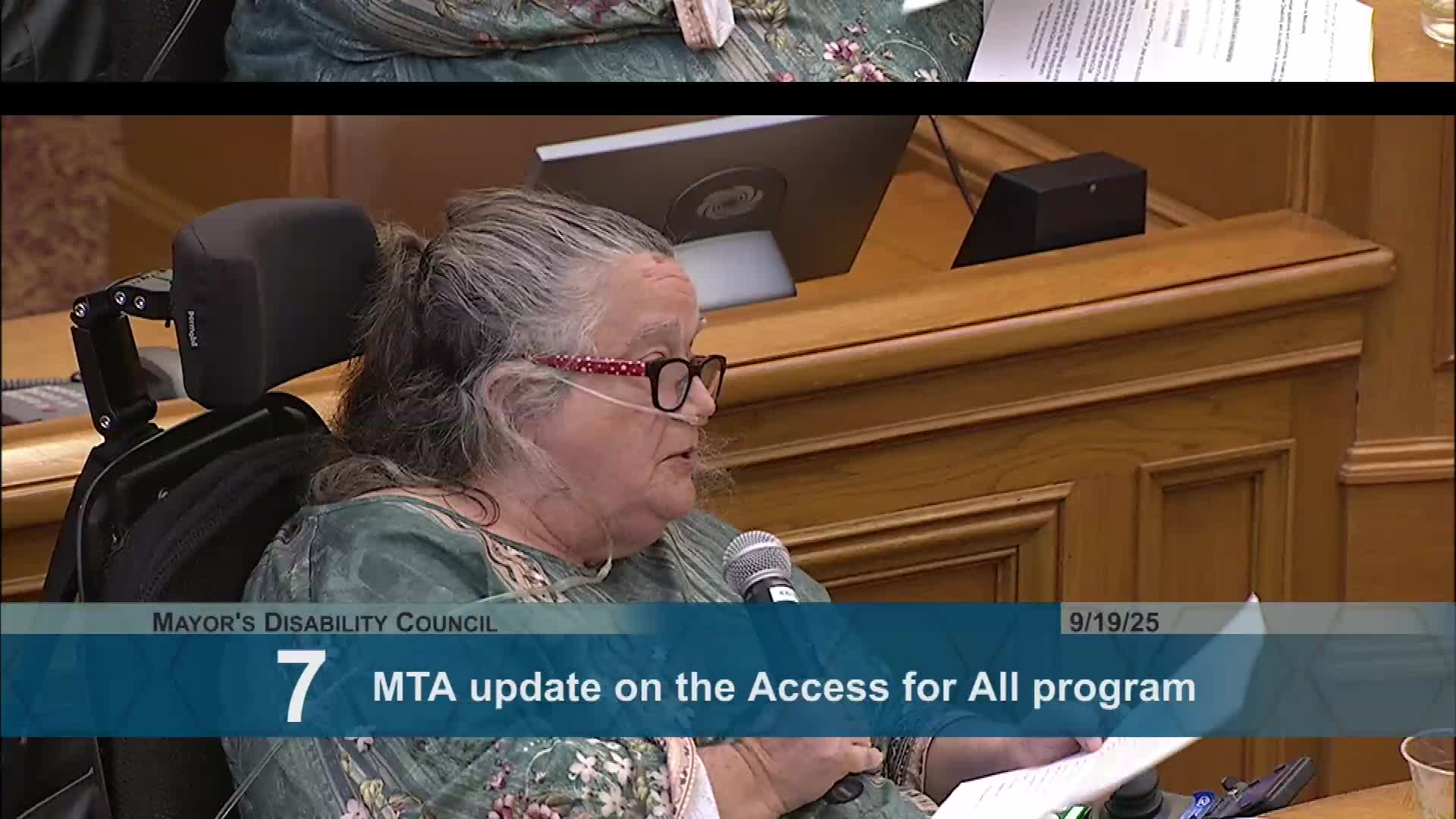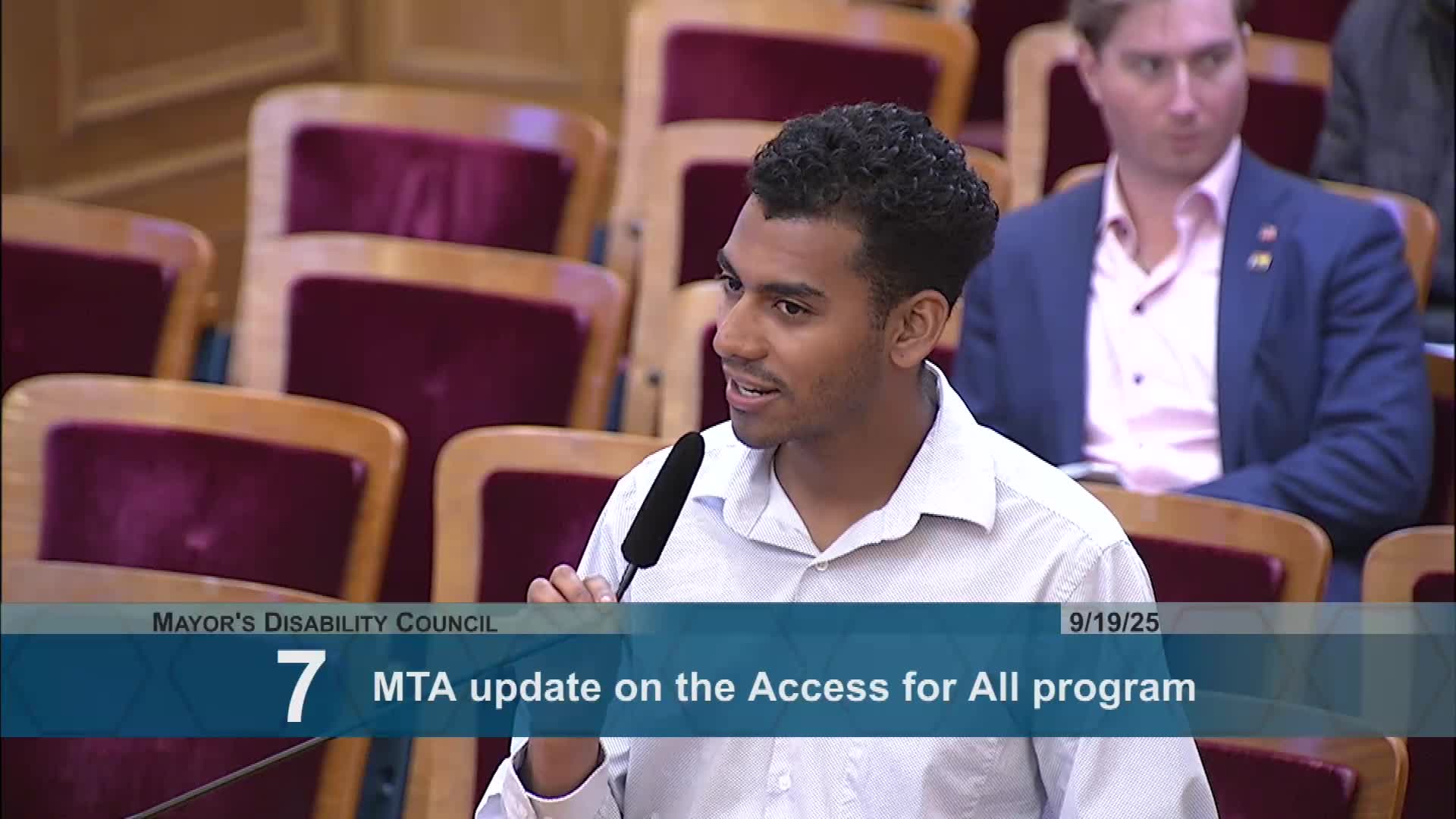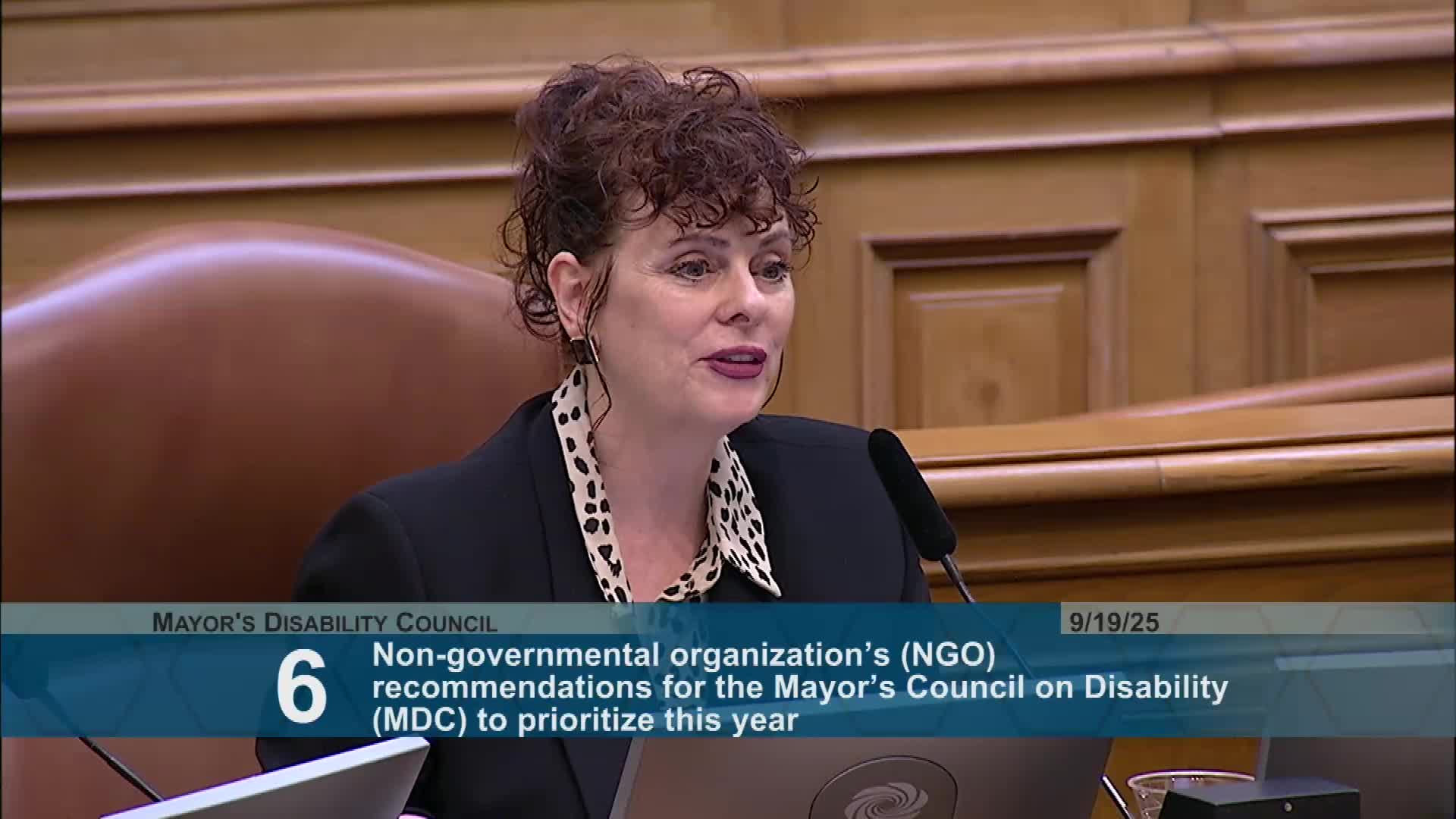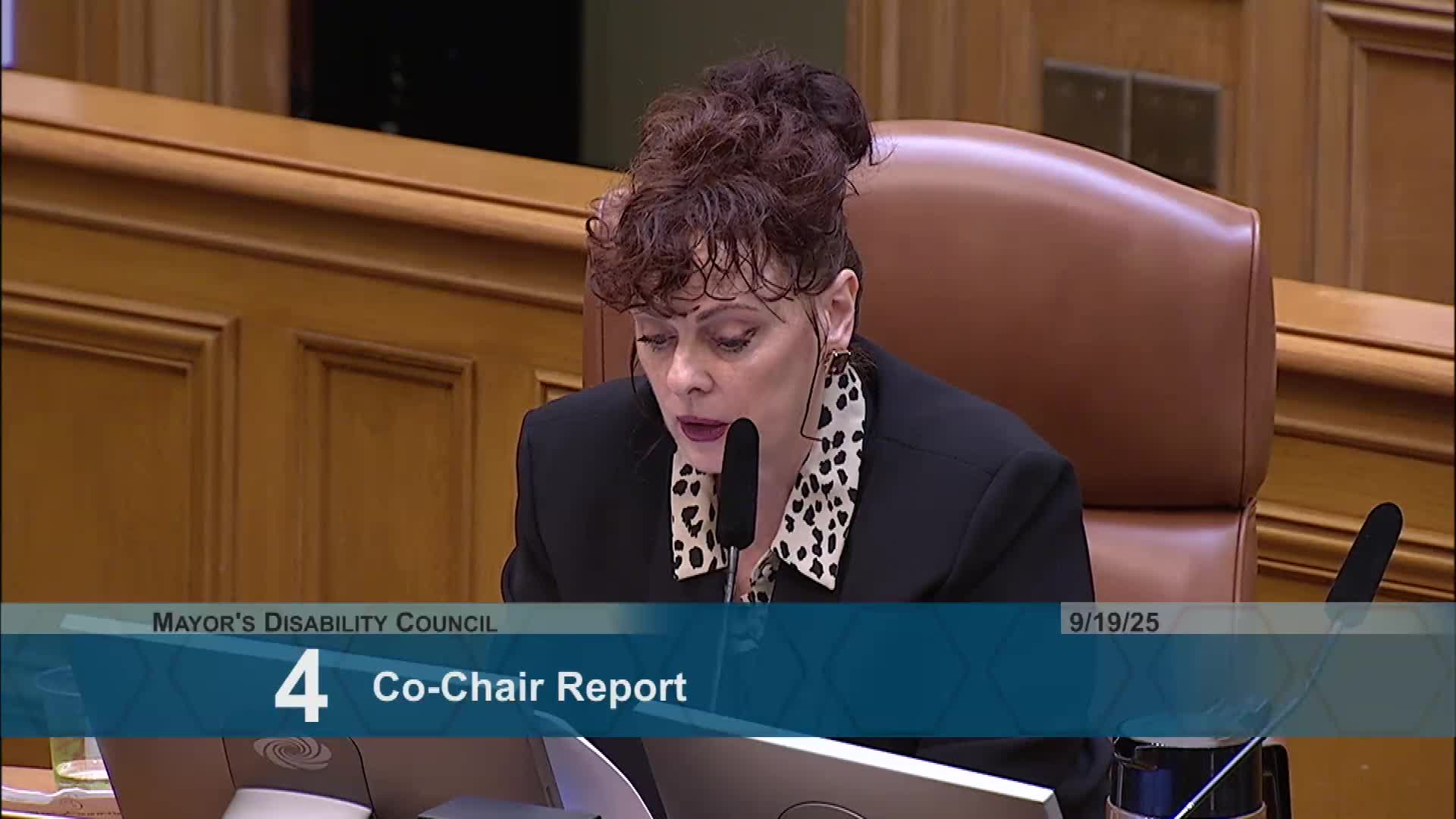Article not found
This article is no longer available. But don't worry—we've gathered other articles that discuss the same topic.

Council receives letters raising accessibility concerns at Sunset Dunes/Great Highway and requests for more curb‑ramp funding

SFMTA outlines early results of Access for All wheelchair‑access program; one contractor discontinued

Local disability nonprofits ask Mayor’s Disability Council to prioritize accessible tourism, transit and workforce supports

